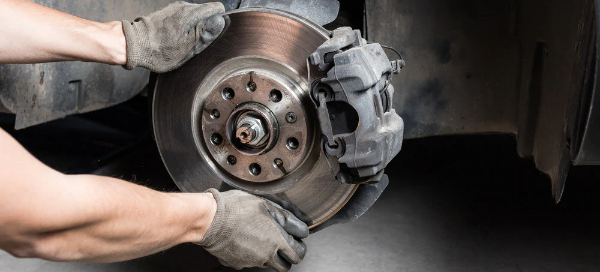Just like anything else in life, it takes time to get to know your vehicle’s braking system—what feels right and what doesn’t. But once you’ve been driving your vehicle for a while, you should have a good idea how your brakes work and should operate. So, what do you do when they’re suddenly not performing like you’re used to? How do you know when it’s time for a brake inspection, brake service, or brake repair? Here’s more on how to test the integrity of vehicle brakes to ensure you’re driving safely.
Air Brakes on a Vehicle Versus Hydraulic Brakes
Perhaps the most vital part of your vehicle’s braking system are the drums, shoes, and lining. These are likely the sources of your problem if you are noticing issues with your brakes are operating. The purpose of the brake drum is to house the braking mechanism so that the lining and the shoe get shoved inside the wall of the drum when the vehicle air brakes are active. This adhesion is what causes your vehicle to slow down or stop. The engagement of your vehicle's air brakes produces heat taken in by the drums. The drums are made with the intent to take on heat, but how much heat depends on the usage of the brakes. Excessive amounts of heat could be detrimental to your brakes.
Don’t Wait to Replace Brakes
To test your vehicle brakes to see if you need a brake repair or brake service, after starting your vehicle, build up the pressure to 90-110 lbs. Check your parking brake by:
- Applying the parking brake
- Shifting into gear
- Releasing the clutch
- Attempting to move
You should not move. Next, charge your vehicle’s air system and allow the airlines to fill. (It will take about a minute to be able to check for leaks.) Apply 90 pounds of pressure and hold for one minute. Three psi should be the maximum leakage. Pumping the brakes should cause the light/alarm to activate, and if you keep pumping, the vehicle’s protection valve should pop out. Then, running and in neutral, check to see how long it takes for the pressure to build back up to between 65 and 100 psi. As the pressure builds, the air governor should blow out.
We Specialize in Brake Inspection, Brake Service & Brake Repair
Because brakes don’t fail overnight, it isn’t always easy to know when your brakes have reached the point where they are dangerous. That’s why it’s so important to have your brakes checked regularly and to take care of any brake service or brake repair you need sooner rather than later. If it’s time to replace brakes or any braking system components, make sure you go to a reputable auto repair shop that uses quality parts. You can trust our mechanics to keep your brakes in excellent condition, so you can drive with confidence.

